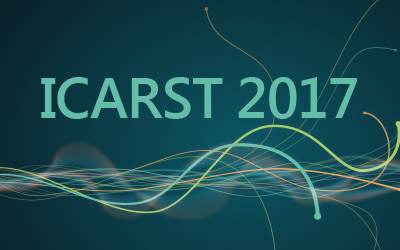Speaker
Ms
Mara Lucia Costa
(Brazilian Nuclear Energy Commission, Brazil)
Description
**BACKGROUND**
The use of radiotracers plays an important role to provide methods to optimize industrial process and improve product quality. An increase in the use of radiotracers investigations has been observed in Brazil, however, as there is no specific standard for the licensing of these facilities, generic radiation protection regulations have been used, but these are not comprehensive or technically suitable for this purpose.
Regulatory inspections carried out in radiotracer facilities have reported failures in disagreement with best practices for radiological safety, mainly in radioactive waste management and in the control of workplaces during radiotracer injections.
In this work, an assessment of radiation protection aspects of radioactive tracers, not covered by generic regulations, is presented, with the aim of contributing to the future development of specific safety regulations in Brazil.
**METHODOLOGY**
The study is based on an assessment of the licensing process of facilities using radioactive tracers in Brazil, as well as the experience of regulatory inspections carried out at facilities using radiotracers and a review of international standards, in order to point out relevant radiation safety aspects in the establishment of regulatory standards for working practices, procedures and protective measures before, during and after injections of radioactive tracers.
**RESULTS**
Among the relevant key aspects and actions for radiological protection in radiotracer investigations, we can point out:
1. Detailed radiological protection procedures, including storage,should be elaborated for operations before, during and after injection, taking into account:
- The different radiotracer injection strategies;
- The available monitoring and decontamination equipment;
- The complete injection apparatus should be checked for proper functioning including pressure tests before tracer injection.
- A water injection through the injection apparatus and connected equipment should be performed for an extended period to clean out any contamination traces before disconnecting injection apparatus.
2. The facility should have a Radiation Safety Officer (RSO) certified by
the Regulatory Authority, specifically for radiotracer applications.
The RSO should not be subordinate to operational groups.
3. Personal alarm monitors should be mandatory for each radiotracer worker; for non-uniform exposures, it may be necessary to wear additional dosimeters for hands or fingers.
4. Survey tests should be performed in order to ensure successful decontamination in all areas that have been contaminated by radioactive material. Equipments that cannot be decontaminated at the jobsite should be properly packaged and sent to the field station for further cleaning or storage.
Additionally, calculations should also be made on the impacts of any possible discharge into the environment, identifying the exposure pathways in order to ensure agreement with authorized limits of national regulations.
**CONCLUSION**
The lack of a specific regulatory standard for the licensing of radioactive tracers operations in Brazil weakens the nuclear regulatory body in its aim of regulating and licensing the activity.
In this study recommendations are presented concerning relevant aspects of radiation protection for radiotracer applications, discussing specific features that should be part of the future regulations, with the purpose of ensuring safety during radiotracer investigations.
| Country/Organization invited to participate | Brazil |
|---|
Primary author
Ms
Mara Lucia Costa
(Brazilian Nuclear Energy Commission, Brazil)
Co-authors
Mr
Evaldo Luiz Costa
(Brazilian Nuclear Energy Commission, Brazil)
Ms
Joana D'Arc Ramos Lopes Gomes
(Brazilian Nuclear Energy Commission, Brazil)
Mr
Rogerio Gomes
(Brazilian Nuclear Energy Commission, Brazil)
Mr
Zieli Thome
(Militar Institute of Engineering, Braizl)

